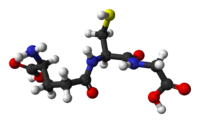
Effect of exogenous proline on the ethanolic tolerance and malolactic performance of Oenococcus oeni
Sign Up to like & getrecommendations! Published in 2020 at "Journal of Food Science and Technology"
DOI: 10.1007/s13197-020-04426-1
Abstract: The use of malolactic starter cultures, often offer no guarantee of microbiological success due to the chemical and physical factors (pH, ethanol, SO2, nutrient availability) that occur during the winemaking process. This study was born… read more here.
Keywords: tolerance malolactic; effect exogenous; oenococcus oeni; performance ... See more keywords

Exogenous application of proline alleviates B-deficiency-induced injury while aggravates aluminum toxicity in trifoliate orange seedlings
Sign Up to like & getrecommendations! Published in 2020 at "Scientia Horticulturae"
DOI: 10.1016/j.scienta.2020.109372
Abstract: Abstract Boron (B)-deficiency and aluminum (Al) toxicity are two major factors limiting plant growth. The objective of this study was to investigate the effects of exogenous proline (Pro) on the antioxidant enzyme system and leaf… read more here.
Keywords: aluminum toxicity; proline; deficiency; exogenous proline ... See more keywords

Exogenous proline mitigates toxic effects of cadmium via the decrease of cadmium accumulation and reestablishment of redox homeostasis in Brassica juncea
Sign Up to like & getrecommendations! Published in 2022 at "BMC Plant Biology"
DOI: 10.1186/s12870-022-03538-4
Abstract: Background As a vital osmoticum, proline has an important role in enhancing the tolerance of plants to environmental stress. It is unclear whether the application of exogenous proline can improve the tolerance of Brassica juncea… read more here.
Keywords: cadmium; exogenous proline; accumulation; juncea ... See more keywords

Exogenous Proline Enhances Systemic Defense against Salt Stress in Celery by Regulating Photosystem, Phenolic Compounds, and Antioxidant System
Sign Up to like & getrecommendations! Published in 2023 at "Plants"
DOI: 10.3390/plants12040928
Abstract: This study aimed to explore how exogenous proline induces salinity tolerance in celery. We analyzed the effects of foliar spraying with 0.3 mM proline on celery growth, photosystem, phenolic compounds, and antioxidant system under salt… read more here.
Keywords: celery; acid; proline; salt stress ... See more keywords